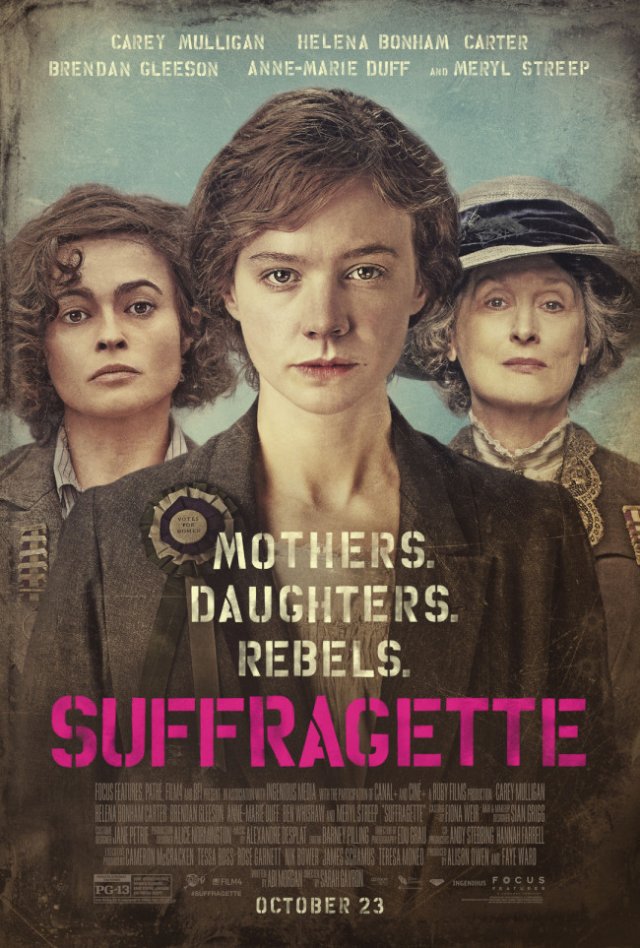
Suffragette
Directed by Sarah Gavron, written by Abi Morgan
Starring Carey Mulligan, Helena Bonham Carter & Meryl Streep
In cinemas now
Suffragette, written by a woman (Abi Morgan), directed by a woman (Sarah Gavron) and co-produced by two women (Alison Owen and Faye Ward) is a paean of praise to the British women who rebelliously demanded the right for women to vote.
Its viewers will leave the cinema with a sense that justice is never granted by the ruling class, it is won through struggle. While centred on the fictional working-class character of Maud Watts, an East End washer woman, Suffragette delves into the violent direct action strategy that characterised the movement after the government refused their polite lobbying for reform.
Instigated by the movement's leader, Emmeline Pankhurst, women smashed storefront windows of upper-class, West End shops, sabotaged both postal and telegraphic communications and even blew the country home of Lloyd George to smithereens.
Watts' journey from super-exploited, uncomplaining worker to self-sacrificing revolutionary illustrates the history.
Unfortunately, the film makers have chosen to step around some aspects of the suffragette story in order to make a satisfying drama.
When Watt begins her involvement, she finds herself socially isolated, both in the workplace and in the community. Neighbours draw their curtains and are horrified when the police bring her home after a demonstration.
But as Katherine Connolly, a historian of the movement has written, while there were contradictory elements in East End life, a hankering for bourgeois respectability was not one of them. In the years in which the film is set, around 1912, the East End saw a series of major street battles between striking dock workers and the police.
Dockers' wives participated in those battles and some graduated to the suffragette movement after encountering it in the prison yard while jailed for their involvement in the dockers' struggle.
The East End suffragettes moved away from Emmeline Pankhurst's leadership when her daughter Sylvia formed the East London Federation of Suffragettes, which later developed into the Workers' Socialist Federation. Sylvia advocated working class self-organisation as the way forward for the movement.
None of this enters into Suffragette.
However, the film does show the extraordinary personal courage of the women in struggle and the terrible cost many of them paid for their militancy. “Never surrender” was their battle cry.
Women died to obtain the vote and many others suffered dreadfully. We must never forget them. The honour the suffragettes deserve is a renewed movement to extend women's rights.
Like the article? Subscribe to Green Left now! You can also like us on Facebook and follow us on Twitter.